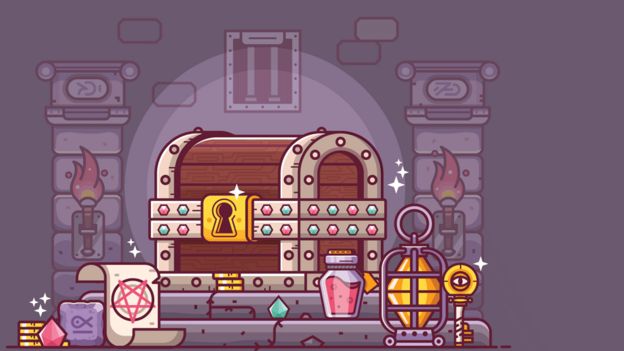In-game spending should be regulated by gambling laws and so-called loot boxes banned entirely for children, MPs say.
The industry's UK trade body responded it would "review these recommendations with utmost seriousness".
But the committee of MPs had accused some of those who had given evidence of a "lack of honesty and transparency".
Free video games often encourage players to buy virtual loot boxes, which contain an unspecified amount of items to improve further game-play.
Some games have associated online marketplaces where players can trade or sell these items.
The Digital, Culture, Media and Sport Committee's inquiry into addictive and immersive technologies heard stories of young adults who had built up debts of thousands of pounds through spending in games. Jagex, the company behind online game RuneScape, admitted players could spend up to £1,000 a week or £5,000 a month.
But the MPs found the industry was reluctant to accept responsibility for intervening when a player was over-spending or even to put a figure on how much was too much.
And some had been "wilfully obtuse" in answering questions about game-play, which MPs needed to know in order to better understand how players engaged with games.
Without naming names, they said they had sometimes found it difficult to get full and clear answers from the gaming industry representatives who had appeared before them, in particular when it came to answering questions about what data they collected, how it was used and the psychology underpinning how games were designed.
"Social media platforms and online games makers are locked in a relentless battle to capture ever more of people's attention, time and money," Mr Collins said.
"Their business models are built on this but it's time for them to be more responsible in dealing with the harms these technologies can cause for some users."
In response Dr Jo Twist, the chief executive of UK Interactive Entertainment, said: ""The video games industry has always, and will continue to, put the welfare of players at the heart of what we do.
"The industry does not dispute that, for a minority, finding balance is a problem.
"This is why we are vocal in supporting efforts to increase digital literacy and work with schools and carers on education programmes."
But Mr Collins said the games industry should contribute financially towards independent research into the long-term effects of gaming.
"Gaming disorder based on excessive and addictive game-play has been recognised by the World Health Organization," he said.
"It's time for game companies to use the huge quantities of data they gather about their players to do more to proactively identify vulnerable gamers."
The MPs also called for both social media platforms and game-makers to establish effective age-verification tools.
Currently both rely on a honesty system and, as a result, there are large numbers of under-age users on social media and playing games.
Loot boxes should not be sold to children and should instead be earned as rewards for game-play, the MPs said.
"Loot boxes are particularly lucrative for games companies but come at a high cost, particularly for problem gamblers, while exposing children to potential harm," Mr Collins said.
"Buying a loot box is playing a game of chance and it is high time the gambling laws caught up.
"We challenge the government to explain why loot boxes should be exempt from the Gambling Act."
There is growing international disquiet about loot boxes, with a US senator calling for them to be banned and the government of Belgium ruling they were in violation of gambling laws.
China has restricted the number of loot boxes players can open each day. Sweden is also investigating them.


